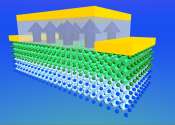Road features that predict crash sites identified in new machine-learning model
Issues such as abrupt changes in speed limits and incomplete lane markings are among the most influential factors that can predict road crashes, finds new research by University of Massachusetts Amherst engineers. The study ...
Feb 13, 2024
0
44









